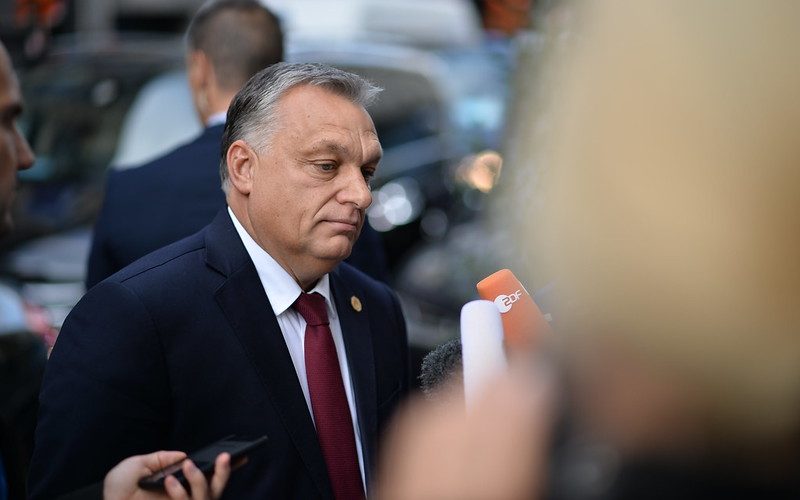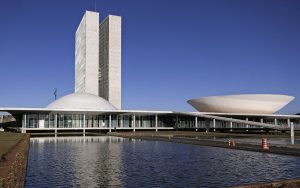Hungarian prime minister Viktor Orbán has been known for his openly racist sentiments for years. In particular, he made headlines ever since what has become known as the “refugee crisis” took place in Europe in 2015 when he harshly criticised the EU’s asylum policies, and he attracted attention in Europe and beyond for his very critical stance on migration. Moreover, the Hungarian police and border patrol’s sometimes violent response to refugees coming to the country in 2015 and after has been widely critiqued by NGOs and certain governments, as the country’s treatment of those seeking refuge even violated migrants’ rights.
Hence, the Hungarian Fidesz government and, in particular, Viktor Orbán are known for their racist sentiment toward “the others”. Prime minister Orbán more than once made clear that he takes an openly racist stance towards anyone who is not from Europe or a “Western culture”.
Nevertheless, his most recent remarks during a speech in Băile Tușnad (also known in Hungary as Tusnadfürdö), a town in Romania where Hungarian minorities live, sparked outrage due to their outright racist nature, combined with antisemitism and a distasteful Nazi joke.
The speech, the racism, the outrage
During the speech, he listed among the pressing issue of our time to be the war in Ukraine, demographics, migration and gender.
Particular outrage sparked his statement that “Hungarians are not a mixed race and do not want to become one”. According to him, Hungarians should only mix with other Europeans and especially with people from the Carpathian Basin, but not with people of other races. He also added that states where Europeans mix with non-Europeans “were no longer nations“. The racist statement created an uproar from European governments and institutions, NGOs, and private individuals.
He also once again brought Soros into the mix, alleging that “Brussels, reinforced with Soros-affiliated troops, simply wants to force migrants on us” – an outrageous claim that is certainly false. Soros and “Brussels” (by which he means the EU institutions) have long been the enemy of Orbán, and he continuously blames them for their alleged influence on the “migration crisis” and for what he calls “gender hysteria“.
Most outrageously, he also alluded to the “great replacement theory”, a white-nationalist far-right conspiracy theory according to which a global “elite” is trying to replace the white population with non-whites in order to achieve a political agenda. More precisely, the theory states that the goal is to replace white voters with non-white voters, assuming that non-white voters vote for more leftist politics – an assumption that is mostly unfounded. The theory is not only supremacist but also antisemitic, given that those that are assumingly part of this “elite” that is blamed for immigration are mostly Jewish. One of the most prominent Jews associated with the Great Replacement conspiracy is George Soros, who has been demonized from the far right for being an advocate for refugees’ and migrants’ rights. As mentioned before, Orbán also regularly uses him in campaigns as a bogeyman and includes him as the “enemy” in his anti-immigration campaigns.
During the same speech, Orbán also called into question Russian sanctions, and Ukraine’s ability to win the war – statements that are often associated with Russian propaganda and that suggest that he still tries to cater to his Russian ally, Putin.
When talking about the EU’s gas emergency plan to reduce member states’ gas consumption by 15% in light of a possible shortage due to the war, Orbán claimed that he did not know how this would be enforced. He then “joked” that the past shows that Germans have knowledge of that – alluding to Nazi gas chambers during the second world war – another comment during this performance that caused bewilderment for its vulgarity.
Rarely any consequences
Orbán’s racist outrage had some consequences for him internationally, as he was mostly criticized by the EU. Even Hungary’s long-term ally in the EU, Poland, parted ways with Hungary as a result of Orbán’s most recent behaviour, according to Polish prime minister Morawiecki.
Nationally, he also had to face some backlash – at least it seemed so at first: his advisor, Zsuzs Hegedüs, resigned, stating in a letter that his remarks were shameful and that Goebbels would have liked his racist speech.
Despite Orbán’s demeanour and his racist rhetoric, he was still invited to neighbouring Austria, where he met Austrian chancellor Karl Nehammer on Thursday, July 28. Nehammer claimed that he would bring up and discuss the issue with Orbán. Orbán, however, denied that he spoke about race – instead, according to him, it was about culture. He stated: “It happens sometimes that I speak in a way that can be misunderstood… the position that I represent is a cultural, civilisational standpoint”.
Luckily for Orbán, after his visit to Austria and his alleging that he had been “misunderstood”, the aforementioned advisor, Hegedüs, stated that her resignation had become “unnecessary” and that Orbán could continue to count on her help in the future. Nevertheless, she also informed the Hungarian news outlet Telex that she would still resign from her advisory position.
Always the victim, always the wronged one
Despite Orbán’s “explanation” for his recent remarks, it should be clear that Orbán was certainly not misunderstood. On the contrary, everybody understood quite well was he was talking about – that he does not want migrants in Hungary due to racist thoughts – and that he meant his words exactly as he said them. Nevertheless, it also seems that Orbán was not prepared for the backlash he faced for his remarks. And the resignation of his advisor of more than 20 years speaks volumes.
We should also not be surprised to hear more speeches of this sort from him in the future. He is still a welcome guest in some places with leaders who think alike. And recently, he apparently turned into a role model for Republicans in the United States – so much so that he is invited to speak at the CPAC in Texas this August. Despite his racism, or perhaps even because of it.
Viktor Orbán made his racist standpoint clear over the past years and demonstrated time and again that his views only got more extreme since his return to power in 2010. As it stands, he will not back down, he will not apologize, and he will not change. He will continue to gaslight people into thinking that he is the victim, always misunderstood by some. And there will be more racist remarks coming from him – because he sees no issue with it and because there are never any real consequences for him.








Be First to Comment